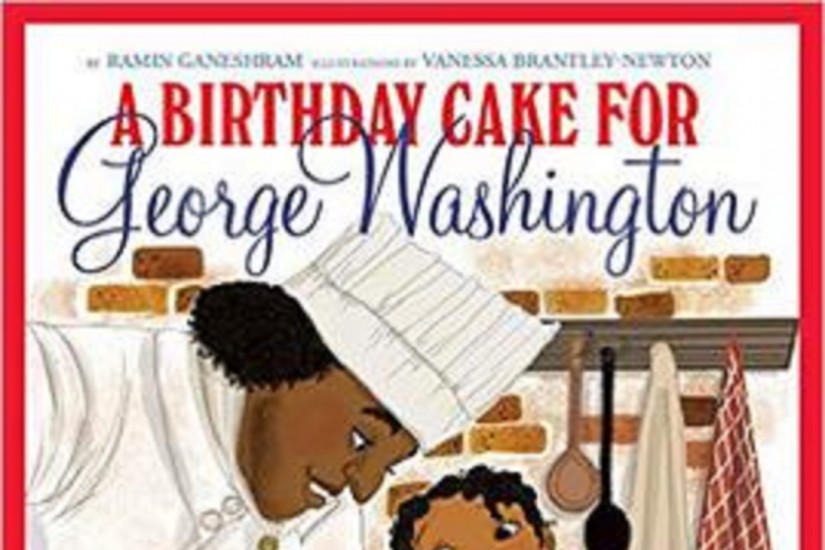A book called George Washington’s Birthday Cake has caused controversy for depicting a smiling black cook, in this case chef Hercules and his daughter, preparing cake in the kitchen for the president, who held in bondage hundreds of enslaved workers. It is unclear what kind of moment we are witnessing on the cover. Is it familial love, servile obedience, or, perhaps, a smile to hide the pain of being enslaved? Improving our understanding of the lives of slaves is key to answering those uncomfortable questions.
The rationale which the illustrator, Vanessa Brantley-Newton, gave for the “happy slaves” imagery was that these enslaved folk, identified as “servants”, were proud and felt privileged to serve a man of such a great “stature”. In her plea for a middle ground, the author, Ramin Ganeshram, argued that not every enslaved person was in the middle of hell every single second, and therefore, smiling isn’t an unreasonable thing to suggest.
I know Ganeshram, as do many in the black culinary scene. I have not dialogued with her about the book, nor have I had the opportunity to read it. Both the author and illustrator, are of color. On the surface, they are right on both counts. But why are we still uncomfortable, opposed and furious – even after the book has been pulled?
Part of the problem is that our society has poorly dealt with slavery in relation to our children. The first “talk” about race, especially for children of color, should confront American slavery, and it would be great if there were a plethora of books to ease that process. This book, although well-intentioned, doesn’t quite succeed.
We need literature that wrestles with the evils of slavery while confronting its complexity – we have yet to find a middle ground for a national conversation and understanding of “the peculiar institution” that doesn’t sandwich our understanding between slavery as Maafa and slavery as Song of the South.
